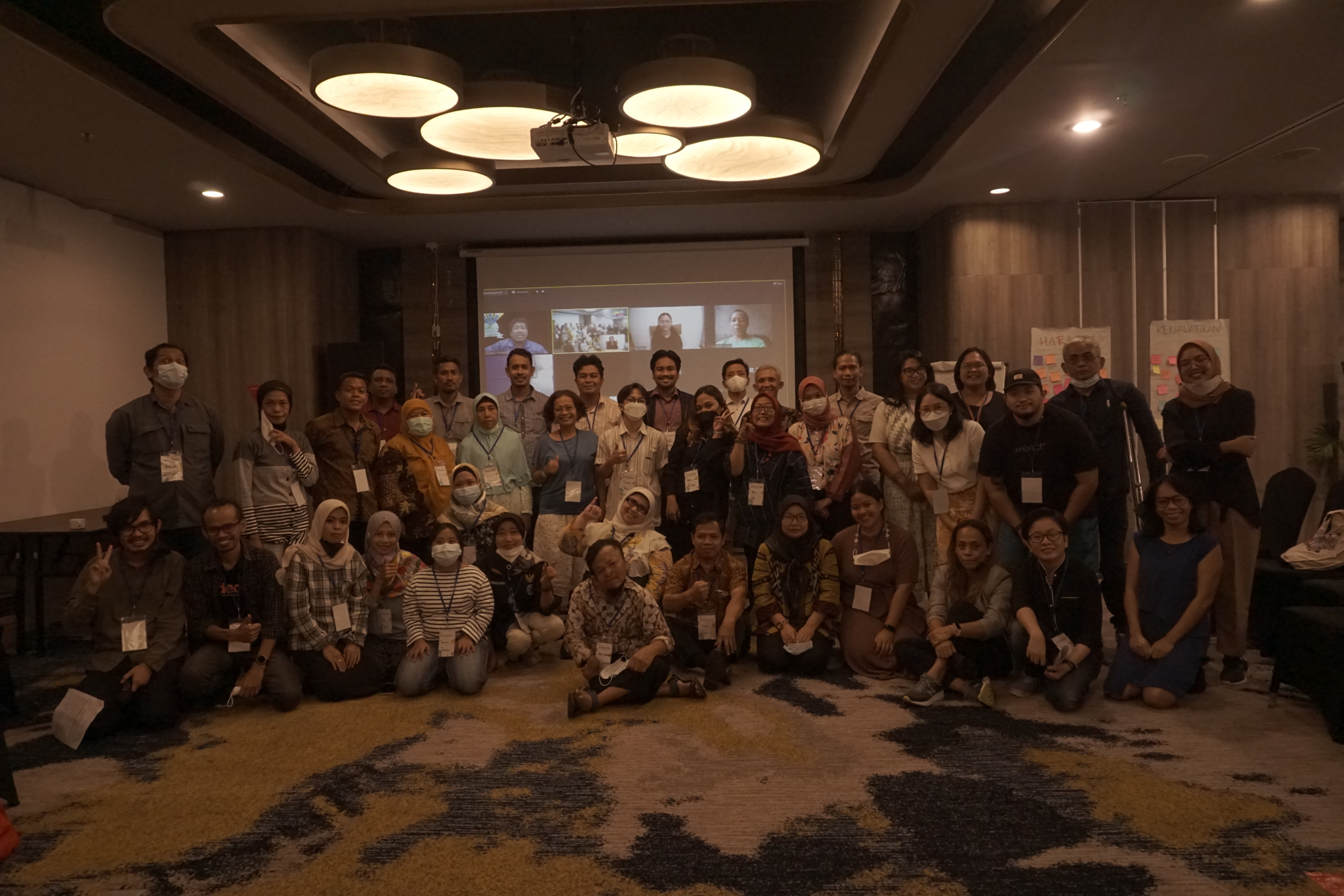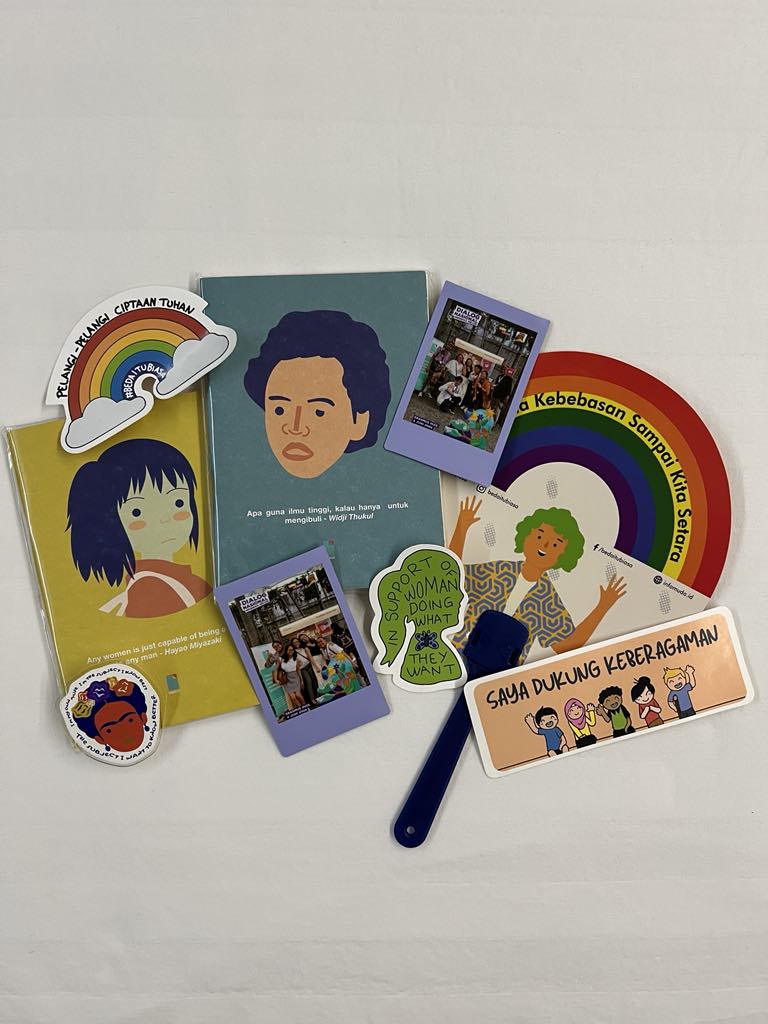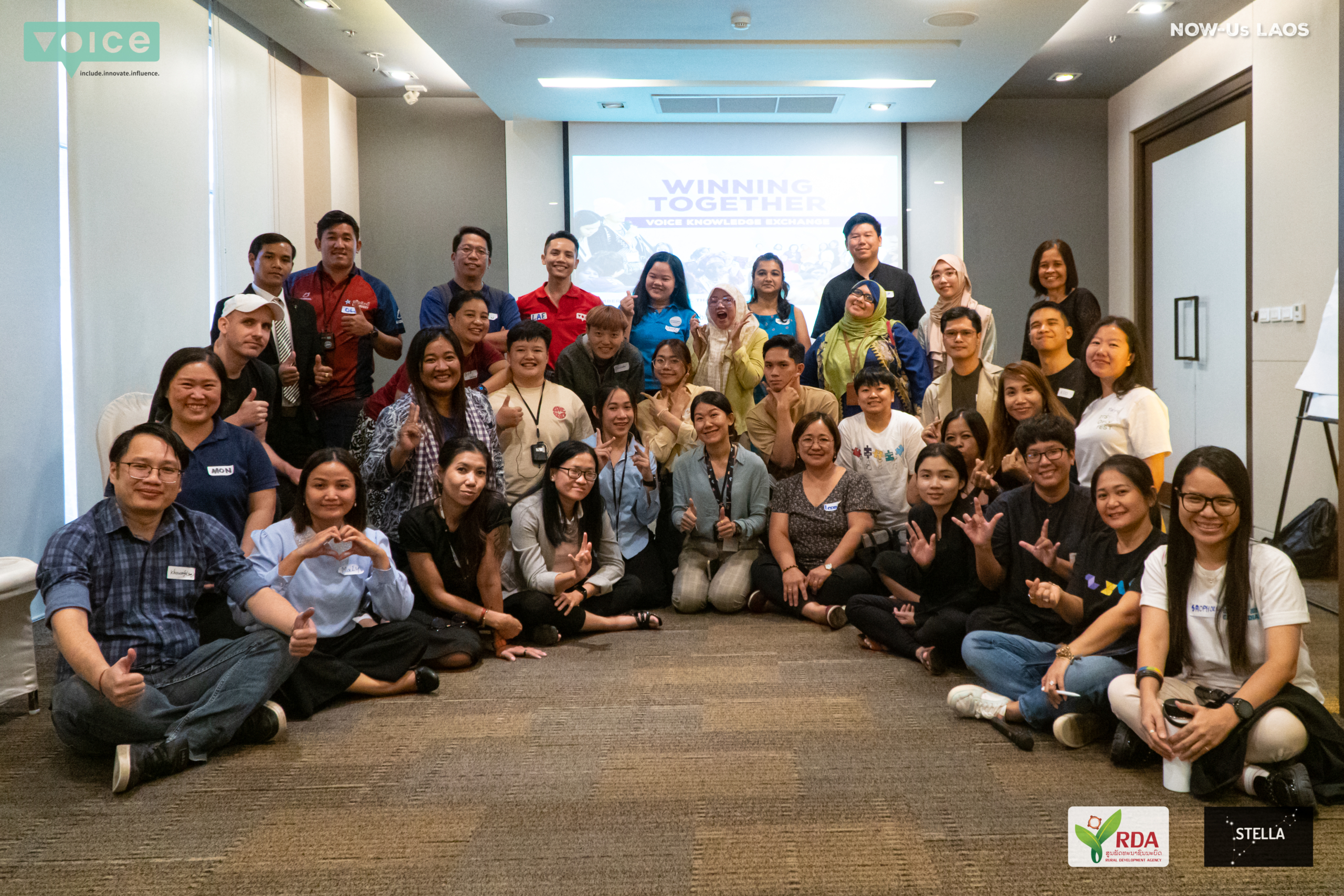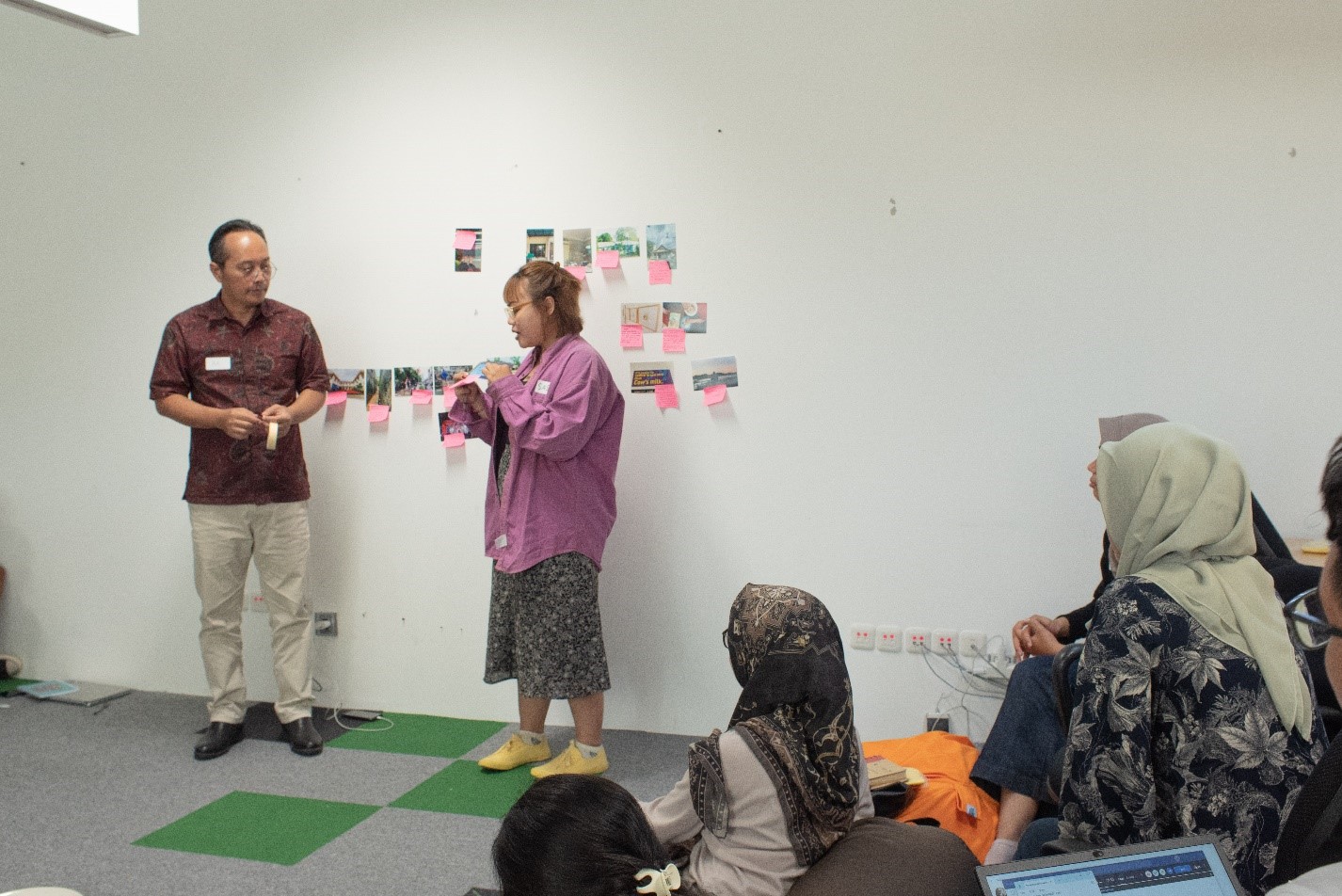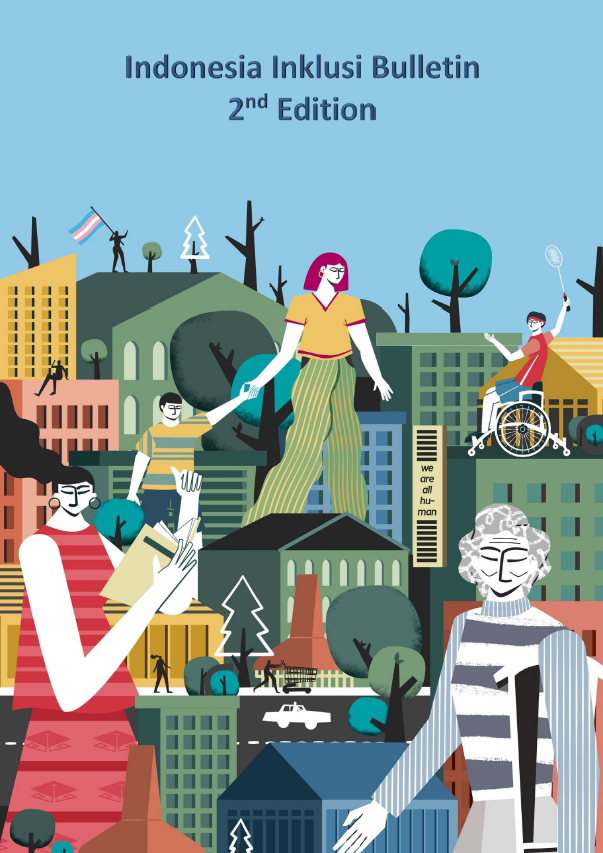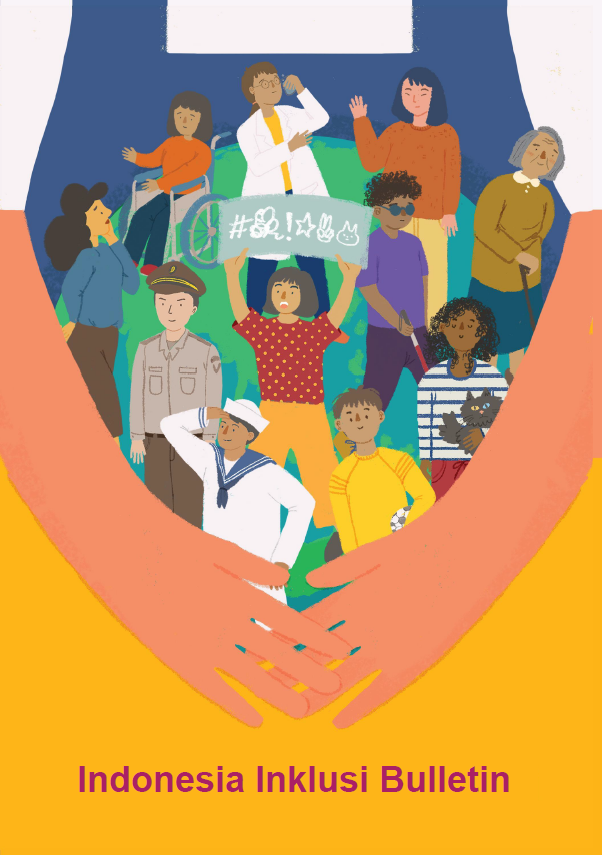Carrying Hope: Connecting Aspirations towards an Inclusive Indonesia
Giany Amorita, Linking, Learning and Amplifier Officer, Voice in Indonesia
Voice Linking and Learning Indonesia’s annual event, National Meeting 2022, started on the 15th to the 16th of September 2022 in Makassar, South Sulawesi. The hybrid activity and organised by Pamflet, the Linking and Learning Facilitator. 18 organization grantee partners under Indonesia Inklusi actively engaged in the discussion. All the sessions were facilitated by our consultants, Ayu Yolandasari, the SOGIE-SC expert and a member of the consortium BRAVE with Transgender Indonesia Network, and Tiwi is a member of the Legal Aid Foundation (LBH) in Makassar.
The aim of the activity was to provide a space for grantees to meet, share, discuss and exchange knowledge about good practices and to consolidate their aspirations to the stakeholders in the next meeting on October 2022.
On Day 1, the facilitator suggested that the participants are sensitive about their gender identities when communicating with each other.
“It is important to ask each person what common pronouns (she/he, sister, brother, miss, sir, or just real name, etc) should be used when we want to communicate with the participants, not limited to gender and sexual minorities group only.”
The session also provided an interpreter for the online participants and made sure that they were included in the discussion.
The grantee partners were divided based on the thematic areas such as increased space for political participation and citizen engagement, improved access to social services, health, and education and improved access to productive resources and employment because we want to have various perspectives from the rightsholders in each group. We sent out the survey in order to know their priority issues. They have discussed based on the three guiding questions about the challenges, the strategies, and the stakeholders that support their projects or that have not reached out to them yet.
Following the group work, the facilitator explained to the participants the different types of documents that are commonly used for advocacy, such as policy briefs, policy papers, position papers, and press releases. Vivi from Perempuan Mahardika shared her experiences with national advocacy, saying, “In the case of the Indonesian government, we need to write and compile the documents in a more efficient manner. For example, under the problematic articles, write the recommendations or demands.”
On Day 2, the group started with unfinished discussion from the previous session and moved forward to write draft recommendations. Returning to the groups, each organization was asked to prepare the data and case studies that support their arguments in the recommendations paper. The five rightsholders face common challenges, including discriminatory-repressive policies and strong stigma, such as:
- Political Participation: Lack of knowledge of government agencies on their responsibilities and even denied the right of sexual minority groups to legal identity such as ID card as the basis for engaging in social and political participation as well as to have access to basic rights
- Access to Resources: Lack of role of the private sector/entrepreneurs in providing support to community empowerment
- Access to Social and Public Services: Service institutions (health and law) are still less sensitive, effective, responsive, and even tend to be discriminatory
Because of the various backgrounds and different realities of grantee partners, not all of them have experience in advocacy. So, it is a natural feeling that some of them were pessimistic about using this strategy. However, this sharing session helped them to get a picture of how to influence the decision-making process within political, economic, and social institutions and get the attention of the stakeholders. Ayu, as a facilitator, stressed that “if only one organization doing advocacy at the national level, maybe the government will disregard us. But, if 18 organizations share their concerns or recommendations, we can influence them by creating inclusive policies. So, a joint advocacy strategy like this can also strengthen the advocacy campaign in practical terms”. It sparks a little hope for everyone in the room.
In addition, those three challenges mentioned above must be overcome by systematic human rights education including gender equality and social inclusion at the community level. By increasing their knowledge and skills in using and exercising their basic rights as enshrined in the 1945 Constitution, the advocacy work towards the policy change will be more effective to be achieved.
“This two-day activity has brought us that if we join forces, our voice is stronger and we are more powerful. Our grantees should critically work together to improve community empowerment and advocacy for social protection, build social dialogue, and use an intersectionality approach in planning, implementing, and evaluating the activities.
At the end of the discussion, Yulius from PBH Nusra (a consortium of Indonesia for Humanity), who joined the online discussion shared his view that “The important thing that needs to be considered is the follow-up of the recommendations we produce. It is hoped that what was discussed yesterday and today can have an impact on the marginalized groups that we have been fighting for and for the realization of an inclusive Indonesia in 2030.”
From the event, we also learned so much about how being an inclusive organizer is important because when we think about diversity and inclusion, it is not only a single characteristic such as race or ethnicity but gender, race, language, sexual orientation, ability, religion, food choices, health (including mental health), etc. Considering how to bring inclusivity into the room, we also need to be mindful of the power dynamics that operate during the meeting among the participants and the facilitators. In addition, humans are unique and dynamic; we view the world and interact with each other in distinct ways. Learning from one another is not always easy and comfortable, thus being open, humble, and willing to admit mistakes and learn from each other will take us far and make us grow.
As much as we were grateful for the kind words from our participants, we realize that we could always do a better job of being more inclusive. Our activities were too jam-packed that we don’t realize some of our participants are elderly. We also neglected to mention that we limit our coffee break time to only 10 minutes, whereas the participants with mobility impairments need more time to adjust. We also have a participant with an intellectual disability (with her caregiver) who is included in group discussions but is not engaged in the forum. We should have another event only with the rightsholders, not specifically discussing the strategic topic like this.
